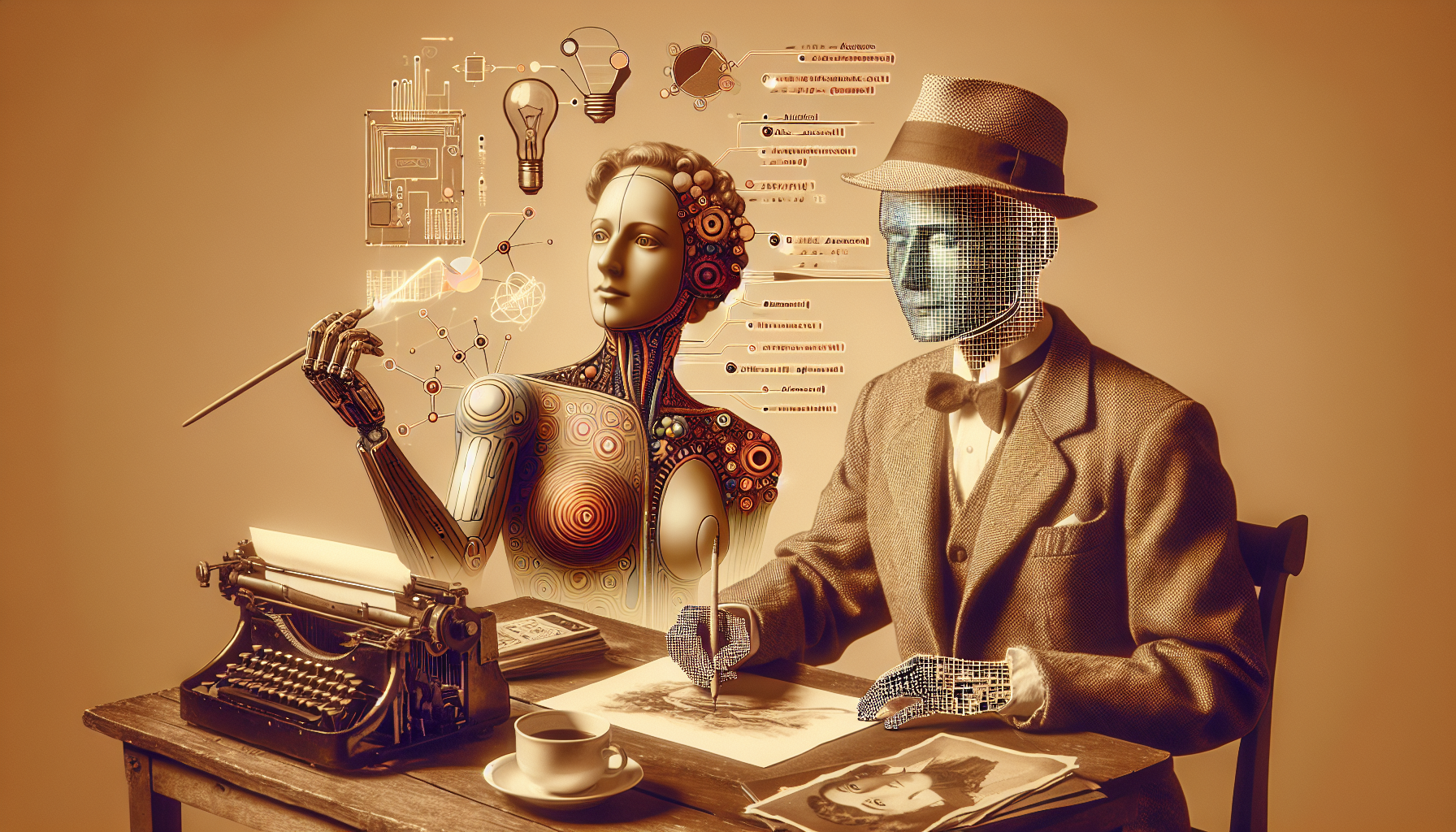As artificial intelligence sweeps into every corner of modern life, people find themselves wrestling with an ancient, existential question: what does it mean to create? For centuries, the arts, sciences, and everyday inventions have relied on the unpredictable spark of human creativity. Lately, though, algorithms seem to be joining the party—writing sonnets, composing jazz, and even designing blueprints for bridges. This certainly makes for snazzy headlines, if nothing else. But can a machine really innovate, or is it just doing a convincing impression of creativity?
The Anatomy of Human Creativity
Let’s start by poking at the human brain—metaphorically, of course. When we talk about creativity, we mean more than just ‘making something new.’ We often mean combining ideas in novel ways, drawing inspiration from deep wells of experience, and sometimes breaking the rules just to see what happens. Creative acts often involve risk, serendipity, and, occasionally, a bit of chaos (for example, the state of my desk).
Human creativity is flavored by emotion, context, and unpredictability. It draws on the unique tapestry of personal experience, social interaction, and cultural backdrop. Picasso’s blue period didn’t come from a random number generator, but from his own grief and melancholy. Even in science, the greatest breakthroughs have come from flashes of insight that defy methodical reasoning—think of Newton watching an apple fall or Kekulé dreaming of a snake biting its own tail.
When Algorithms Perform: Creative or Imitative?
Now, enter AI. These systems digest armfuls of data and uncover patterns faster than any human. They have penned poems about love, composed symphonies in the style of Mozart, and generated paintings that win art prizes (to some artists’ dismay). But how are they actually doing this?
Let’s take a peek under the hood. At their core, today’s most advanced AI models—like the neural networks behind ChatGPT or those creating “AI art”—are statistical pattern matchers. They learn from mountains of examples, then use those examples to generate something that fits the pattern. If you train an algorithm on a hundred thousand Shakespearean sonnets, it will eventually spit out a passable “new” sonnet. Is that innovation, or imitation at speed?
Some would argue that all art is built on imitation. Musicians riff off old tunes, writers borrow plot twists, and inventors stand on the shoulders of giants. But the difference, of course, is depth and intent. A human artist, when they remix the past, brings emotional resonance, lived experience, and (sometimes) rebellion against the very system they are part of. AI, by contrast, blends ingredients without ever having tasted the soup.
Surprise Me: Can AI Be Truly Original?
One test for creativity is surprise. A creative work makes us see the world in a new way—sometimes delighting us, sometimes unsettling us. When an AI generates an unexpected poem or melody, it can feel genuinely surprising. That’s because the possibilities are so vast, and the system might stumble on combinations a human wouldn’t think to try.
But here comes a subtle distinction: does the AI know that it has surprised us? Does it even know what “surprise” is? No—at least, not yet. A child might draw a green sun by accident and giggle at the oddness; an AI draws a green sun because the data nudged it there, unconcerned with oddness or convention. It’s the human onlooker who brings meaning and context to these quirks. For now, AI is more of an accidental innovator—a million monkeys at a typewriter, with autocorrect enabled.
The Next Step: Toward General Intelligence?
So far, our creations are basically highly skilled parrots—very fast, eerily accurate, sometimes surprising, but lacking understanding. What about “strong” or “general” AI—the kind that could reason, joke, and dream like a human? If such a thing ever arrives (a big “if” at this stage), it may blur the distinction between imitation and innovation. True creativity requires not just generating novelty, but having a sense of self, context, and purpose. That’s a tall order, even for silicon.
Researchers are exploring new models that try to simulate curiosity, emotion, or even “intuition.” But recreating the messy, mysterious process of human creativity is daunting. After all, we hardly understand it ourselves. Still, every leap in AI so far has surprised its own inventors, so it pays to stay humble (or at least vaguely worried).
Will AI Change the Meaning of Creativity?
Let’s acknowledge an uncomfortable truth: the arrival of creative machines forces us to rethink what creativity means. If an AI can compose a symphony indistinguishable from Beethoven’s, is it any less beautiful for being generated by code? Maybe our definition of creativity will expand—much as photography was once distrusted as mechanical, but became a celebrated art form. Or maybe we’ll cling to the “human touch” as a precious counterpoint to infinite, perfect (and perfectly bland) machine creation.
There’s also the possibility that new forms of creativity will emerge, blending machine and human collaboration. AI can already push artists out of their comfort zones, suggesting colors they’d never imagined or melodies that defy tradition. The creative process itself may become less about individual genius and more about orchestrating a symphony of human and machine voices. One can imagine the art galleries of the future including not just the work, but the dialogue between human and algorithm that produced it—assuming anyone wants to hang out with a neural network at an opening night.
Conclusion: Cherishing the Unpredictable
In the end, perhaps creativity is less about the finished product and more about the journey—risk, limitation, inspiration, and the joy of accident. For now, AI’s “creations” are mirrors reflecting our own tastes, biases, and ambitions. They can be dazzling. But their innovation is, so far, unintentional—a byproduct of good engineering, not restless curiosity.
Who knows what tomorrow’s algorithms will bring? Until then, let’s celebrate both the brilliant algorithm and the chaotic, coffee-fueled artist. As any philosopher (or software engineer) knows, the universe’s best surprises come from systems that aren’t entirely under control.

Leave a Reply